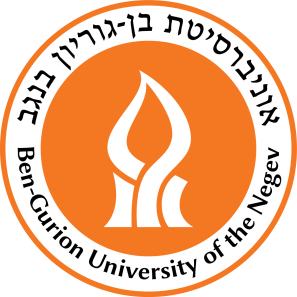 Ben Gurion University (BGU) is a public, research university in Israel. The main campus is in Be’er Sheva city, hosting ~20,000 undergraduate students, studying towards various degrees from social, humanities and economics to medicine, natural sciences and engineering. The research will take place in BGU’s Sede-Boqer campus. Uniquely located in the heart of the desert, it houses the Blaustein Institutes for Desert Research (BIDR), where the fields of agriculture, biotechnology, ecology, solar energy and water are studied in the context of dry regions within three institutes. One of them, the Zuckerberg Institute for Water Research (ZIWR), is academic home for more than twenty independent researchers and one hundred graduate and post-graduate researchers coming from around the world, focusing on different aspects of water science and technology. The department of desalination and water treatment (DWT) within the ZIWR focuses on various water treatment processes with an emphasis on membrane-based water treatment processes of all kinds. This work covers the whole range of development from basic research at the lab bench up to semi-industrial pilot studies in our pilot facility treating processes up to 1-2 m3/day. Relevant to this project, is that we have four different setups in the pilot at different scales that can carry out electromembrane processes.
Ben Gurion University (BGU) is a public, research university in Israel. The main campus is in Be’er Sheva city, hosting ~20,000 undergraduate students, studying towards various degrees from social, humanities and economics to medicine, natural sciences and engineering. The research will take place in BGU’s Sede-Boqer campus. Uniquely located in the heart of the desert, it houses the Blaustein Institutes for Desert Research (BIDR), where the fields of agriculture, biotechnology, ecology, solar energy and water are studied in the context of dry regions within three institutes. One of them, the Zuckerberg Institute for Water Research (ZIWR), is academic home for more than twenty independent researchers and one hundred graduate and post-graduate researchers coming from around the world, focusing on different aspects of water science and technology. The department of desalination and water treatment (DWT) within the ZIWR focuses on various water treatment processes with an emphasis on membrane-based water treatment processes of all kinds. This work covers the whole range of development from basic research at the lab bench up to semi-industrial pilot studies in our pilot facility treating processes up to 1-2 m3/day. Relevant to this project, is that we have four different setups in the pilot at different scales that can carry out electromembrane processes.
Role in the project
BGU is leading pilot 10 within WP2/3 to prepare a field ready version of the ion exchange membrane bioreactor to treat effluent from SBR reactor containing unacceptably high levels of nitrate and nitrite and will reduce them to nitrogen without causing any secondary contamination of bacteria or organic compounds. The extensive studies conducted at the process level at the ZIWR pilot facility give us the experience to allow us to translate lab processes into semi-industrial processes. In the past we have done processes to desalinate saline groundwater that was directly piped to the pilot facility employing electro-membrane processes that allowed us to treat 1.8 m3 per day.
Website URL

